Inside Kazakhstan’s Overcrowded Pre-trial Detention Centers: Orda Talks to Those Who Know Issue Firsthand
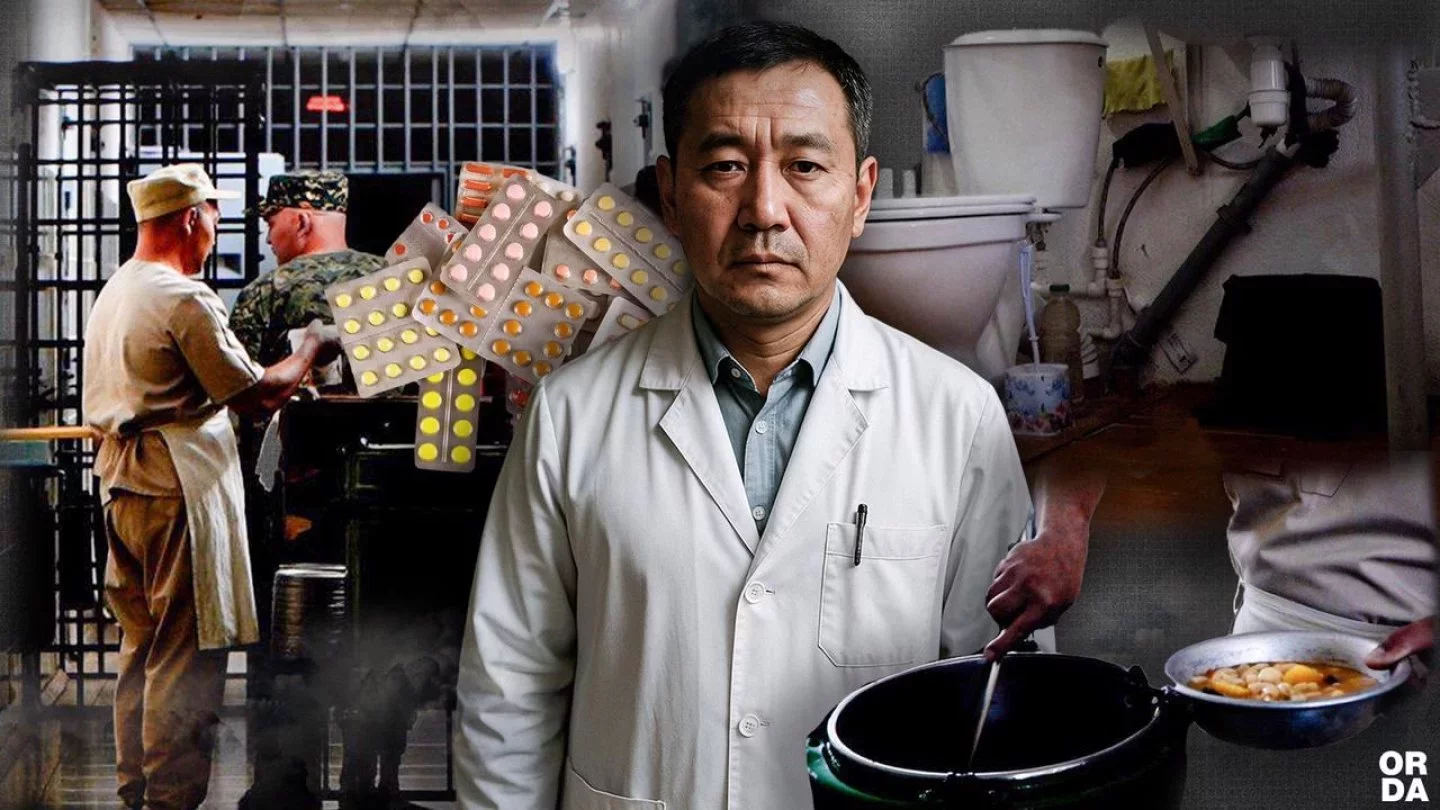 Photo: Orda.kz collage
Photo: Orda.kz collage
Where is the food better — in pre-trial detention or in prison colonies — and why do convicts say serving time is easier than awaiting trial?
Orda.kz investigated.
Earlier, we reported on the conditions faced by detainees in Almaty’s pre-trial detention center. According to a local lawyer and a former guard, cells are overcrowded, stuffy in summer, and cold in winter. Food and medical care leave much to be desired.
Now, new complaints have emerged: detainees are rarely allowed outside, and food packages from relatives sometimes arrive spoiled. Families of defendants waiting for hearings at the Specialized Interdistrict Criminal Court have voiced these concerns.
Orda.kz sent official inquiries to the Ministry of Internal Affairs and the Prosecutor General’s Office, asking whether the agencies were aware of these problems and what measures were being taken.
We also spoke with people who have firsthand experience of Kazakhstan’s prison system.
“It Got Worse!”
Our first interviewee was Almaty lawyer Elena Zhigalyonok, who first raised the issue of overcrowding in Almaty’s detention center in March 2025 and later met with the city’s prison administration.
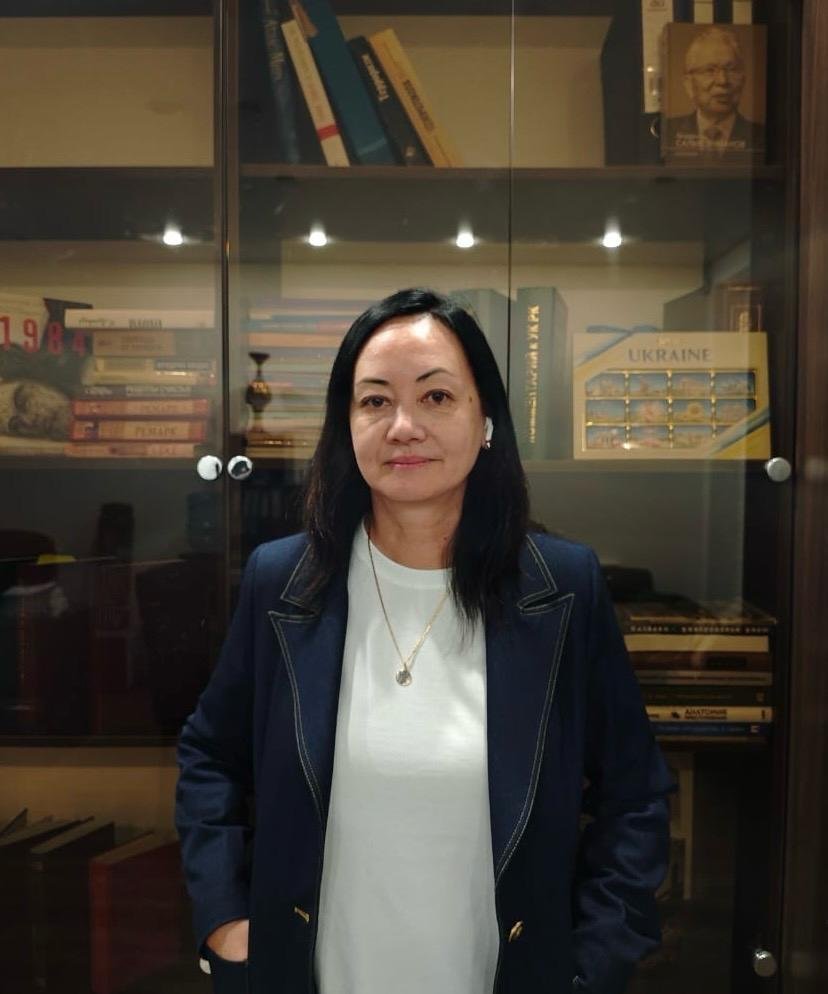
Elena, in your Facebook post, you wrote that over 1,800 detainees were being held in Almaty’s pre-trial detention center, which has a limit of 1,360 people. After meeting with the prison management, were you able to resolve the overcrowding issue, at least partially?
— No, it wasn't possible, because the root of the problem lies in the work of the investigative judges. They are the ones who choose pre-trial detention for almost all suspects. In rare cases, they agree to bail or house arrest. The head of the facility can't solve the overcrowding problem, no matter how hard he tries.
Questions should be addressed to the investigative judges and prosecutors.
Since the cells are overcrowded, how do detainees manage to get their daily outdoor walks?
— Good question. The rules stipulate a daily hour-long walk. However, people are sometimes not taken out for weeks because of a supposed staff shortage. The most a suspect can expect these days is one walk a week. This is unacceptable, and I hope the supervisory authority will take action and the local DUIS management will address the issue.
After a conviction takes effect, convicts must be transferred to a correctional colony within ten days. But some relatives say detainees are being transferred before their appeal is heard. Why does this happen?
— Again, due to overcrowding at the Almaty pre-trial detention center. New groups of convicted persons are arriving, so some defendants are being sent to Taraz. They are awaiting appeal at the local prison.
To stay there, at Facility No. 72, formerly known as SI-18, the defendant must submit a request to review the criminal case file and audio and video recordings of the court hearings in a timely manner.
If you don't have time to submit a request, be prepared to be relocated to a neighboring region. Incidentally, after an appeal, no one guarantees that an Almaty resident will serve their sentence according to their territorial jurisdiction, that is, in the Almaty region. They could be sent elsewhere.
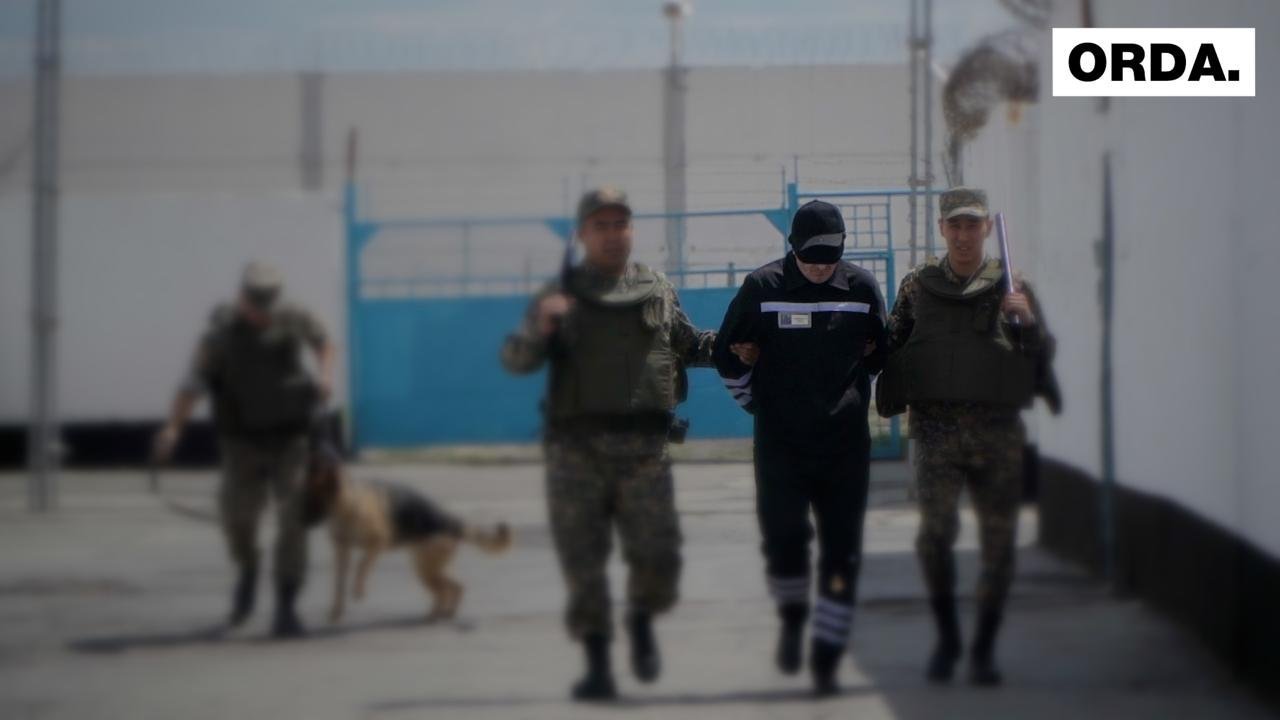
Why do some relatives complain that homemade food arrives spoiled or late?
— These packages are collected in one place in the pre-trial detention center during the day and distributed to the cells only in the evening. In the summer, in the heat, the food might spoil a little.
Lawyers and human rights defenders often say it’s dangerous to fall ill in prison — that people risk becoming disabled or dying. Why is that still the case when prison healthcare has been under the Ministry of Health for two years now?
— What they tell you isn't prison anecdotes or horror stories. It's true. If someone feels ill in the evening or at night, you won't be able to reach a doctor. And if you do, you'll get simple medications that will only help relieve the pain. To avoid serious complications of a chronic illness, more potent medications are needed. If relatives bring them, and a doctor approves them, the person can still be helped.
In my observations, access to medical examinations is a serious problem in penal correction institutions in general. For example, I have a client — a young man with kidney disease and fluctuating blood pressure. So, he was taken to the clinic a couple of times for examinations, but ultimately refused hospitalization.
They allegedly found no grounds for this, even though he's not getting any better.
Do you think this is to save money?
— It's much more prosaic: there's a shortage of doctors in the facilities. They're assigned to them, but in reality, they work and are on the staff of the district clinic. For example, doctors from Clinic No. 24 come to the Almaty pre-trial detention center. They have limited time to see patients, and they also need referrals for ultrasounds, MRIs, and CT scans.
So people wait weeks for medical examinations.
This is a major problem and, accordingly, a violation of the constitutional right to health care, which again brings us back to the need to end the wholesale sanctioning of pre-trial detention.
A former prison officer told me there were cases of detainees dying in cells — from epilepsy, asthma, or cancer — because they didn’t get timely medical help. Why are such people being detained at all?
— As a rule, in such cases, investigative judges state in their rulings that the facility allegedly has no problems accessing medical care. So, let the diabetic, asthmatic, epileptic, or cancer patient sit while awaiting trial. The situation, in my opinion, is bleak because judges are afraid to be merciful and principled.
They're afraid to break free from the well-oiled machinery, fearing possible corruption charges, or they're overly cautious about potential escapes. So they send almost everyone to pre-trial detention.
Delivery Address: Prison
Our second interviewee, Denis Kvitash, is an Almaty entrepreneur who has been inside Almaty’s detention center twice — first as a suspect, then as a convicted person.
He was recently released after the Supreme Court overturned his convictions.

Denis, how did you end up behind bars twice?
— It's not like I wanted to; they did it against my will! But seriously, in the summer of 2023, the city's Department of Economic Investigations opened a criminal case against me for fraud. I denied the charges, and my wife even held a solo protest — you wrote about this. The investigating judge ordered pre-trial detention.
That's how I ended up in Facility No. 72, or, more simply, a pretrial detention center. I was held there from July 23, 2023, to November 1, 2024. Then the Almaly District Court found me guilty and sentenced me to six years in prison.
You spent over six months in a general-regime colony. How did you manage to get your conviction overturned so quickly?
— I filed complaints with the Supreme Court regarding violations of criminal and criminal procedure law during the investigation of my case and its trial in the first instance, and they heard my voice. The chair of the Supreme Court's criminal division, Nazgul Rakhmetullina, overturned the verdict and remanded the case for a new trial.
On September 4, 2025, a new panel of judges acquitted me of seven of the nine counts. The statute of limitations had expired for the remaining two counts. I was released that same day. Since then, I have been seeking a full acquittal in the cassation court!
Why won’t you name the colony where you served time, when you’re open about the detention center?
— Don't get me wrong. If I call a spade a spade, my fellow prisoners could suffer because of this. They're still serving time! I'm giving you the number of the pre-trial detention facility openly because there are only two such facilities in Almaty. One is called the Department of Internal Affairs of the Ministry of Internal Affairs, the other is called the Department of National Security. Of course, I was in a regular prison.
Was your second time in detention different from the first?
— Of course, because the second time I was held in a local precinct, where they hold convicted prisoners. You probably know that in prison, they look at the charges against a person. If they're charged with extremism, separatism, or terrorism, they're sent to a special precinct, which is completely controlled by national security officials.
For example, Diky Arman and his accomplices were held there in the high-profile January events case. If a person has no previous convictions, or their convictions have long been expunged, they're sent to the regular seventh, eighth, or ninth precincts.
They're located on the third, fourth, and fifth floors of the prison. I was held in the eighth precinct, in a standard 10-bed cell.
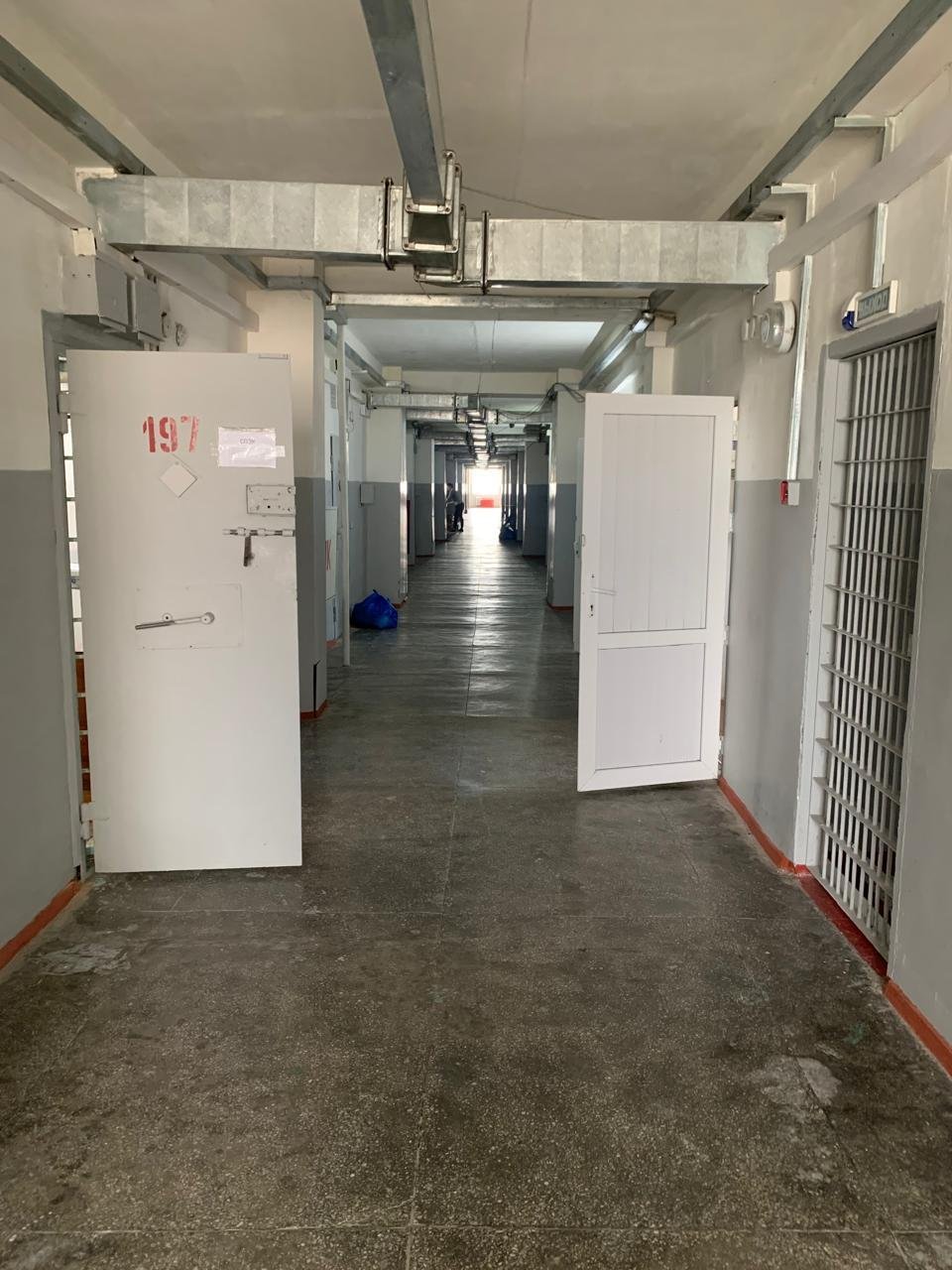
How many cellmates did you have? Was the prison overcrowded in 2023?
— When I first arrived at the pre-trial detention center, there were 11 people in our cell. Then one inmate was transferred to another cell, and we were down to 10. As for the prison overcrowding issue, I wouldn't say that every cell was completely full.
It's just that when I was in prison, I heard that there were 15 suspects in a cell designated for sex offenders.
What about the food? Did you prefer home meals, delivery, or prison food?
— In our cell, we had an agreement that we would take turns providing food for each other. Every day was scheduled: for example, on Tuesdays, I was responsible for the table. I always ordered ready-made meals to be delivered so as not to trouble my family.
There were no food restrictions; you could order anything from roasted lamb to crab.
The only thing you couldn't order were pastry items — manti, pelmeni, and vareniki — because the guards would crumble them finely. They checked for hidden SIM cards, drugs, or money. Incidentally, in a penal colony, unlike in a pre-trial detention center, you can order baked goods.
How much did you spend on food per month? Did the menu differ by block?
— I spent over 100,000 tenge a month on food delivery. Regarding the variety and quality of food in different prisons, I can only compare the food provided to previously convicted inmates with those on their first visit. When I was sent to the pre-trial detention center for the second time, I noticed that the food in the prison for walkers was better and more varied than in the neighboring prisons.
According to Order No. 448 of June 5, 2023, issued by the Minister of Internal Affairs, inmates were given cheese, sausage, cottage cheese, eggs, and butter. It wasn't exactly top-quality, but, as the saying goes, when there's no fish, even a crayfish is a fish. Prisoners are wary of meat, as there were rumors that it was from old stocks, like stale or frozen. I tried it myself and had no complaints about the taste or freshness.
However, inmates prefer chicken dishes over beef or pork.
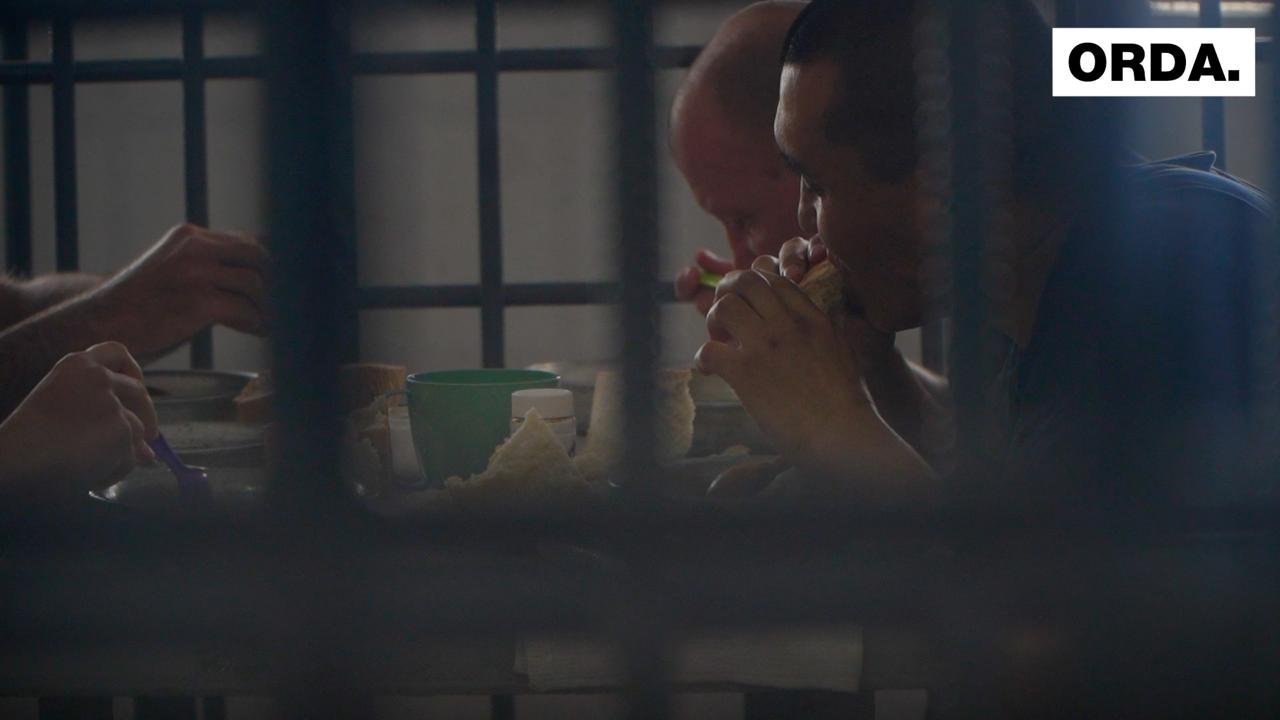
Did deliveries from relatives ever arrive spoiled or late?
— I told you, we tried to order ready-made meals delivered. Why burden relatives with frying and cooking homemade meals, only to have them then carry the package halfway across town to the pre-trial detention center? It's easier to order online, or at worst, ask someone to buy some groceries at a store near the pre-trial detention center. I only remember one incident involving spoiled food.
It turned out someone had ordered a ready-made meal, and it was delivered to the pretrial detention center on time.
However, the guards mistakenly sent the food to the wrong section, and it spoiled. Even though the delivery company wasn't at fault, they still refunded the relatives.
How was the food in the colony cafeteria?
— Let's put it this way: when I was quarantined for 15 days in the camp, I was pleasantly surprised by the quality and variety of the menu in the local cafeteria. The food was varied compared to what they served in the pre-trial detention center. But then, either my taste buds changed, or the cook started cutting corners, but sometimes I could clearly taste potassium permanganate.
So, camp cuisine varies from place to place? I ask because in 2023, a convicted foreigner complained about the quality of food in the Zhezkazgan facility. He said they were given worm soup for lunch. And you say you were well fed at the same time, but in a different facility. What does the standard diet for prisoners look like?
— Porridge for breakfast remained on the menu in the canteens of all penitentiary institutions because it's healthy. Buckwheat and rice were served as side dishes with the main course. But more often, four times a week, we were served pasta. After a year of constant consumption, you get tired of it. I've noticed that if a cook takes their job seriously, they try to add variety to the pasta.
For example, they add various seasonings and herbs.

Last year, our Orda.kz crew visited a strict-regime colony and were impressed by the food and cleanliness. Is that the norm, or was it staged?
— (Laughs) I think the second one. Fruit, rich meat soups, Greek-style salads, and Kyiv chicken are only seen on the tables of prison cafeterias in two situations. That's when an inspection committee arrives at the facility or when journalists from leading media outlets come.
Official Comments
We sent editorial inquiries concerning the moments mentioned above to the Ministry of Internal Affairs and the Prosecutor General's Office.
The responses arrived on time, but they were brief.
The Ministry of Internal Affairs press service, as usual, ignored several uncomfortable questions, commenting only on what it deemed necessary.
We still haven't learned how the Minister of Internal Affairs is trying to address the pressing issue of overcrowding in the Almaty prison, which only houses suspects. Their guilt hasn't yet been proven, the verdict hasn't entered into force, and there's a minimal chance of acquittal.
The country's main oversight body is aware of the general problems facing detainees and the overcrowding in the Almaty pre-trial detention center in particular. According to a letter signed by Murat Akhmetov, head of the Prosecutor General's Office's Second Service, local prosecutors inspect detainees' conditions daily and even respond to violations.
However, they are hearing about food parcels spoiled in the heat for the first time. They advised that specific cases be reported to the local Department of Correctional Services or the prosecutor's office.
We are forwarding this letter to the relatives of those who complained about spoiled food.
We will continue to cover the everyday life of incarcerated persons.
Original Author: Zhanar Kusanova
Latest news
- Kadyrov Confirms Drone Damage to Grozny City
- Russia Temporarily Blocks Kazakhstan's Grain Transit, Threatening Flax Exports to Europe
- Assets of Businessman Dulat Kozhamzharov Seized Following Halyk Bank Claim
- Georgian Opposition Calls December 6 March Over Alleged Use of Chemicals at 2024 Protests
- Severe Smog Covers Oskemen
- Fire and Structural Damage Reported at Grozny City Tower Amid Drone Threat
- Pashinyan Says Foreign Influence Networks Exposed
- Kazakhstan-Based Lukoil Assets Could End Up in Hungarian Hands
- Strong Tenge Pushes Some Banks to Temporarily Stop Issuing Dollars
- Investigation Links Baimsky Project to Nazarbayev's "Wallet," Vladimir Kim
- Three Kazakhstani Nationals Arrested in Georgia Over Alleged 10,000-Ton Oil Theft
- Turkistan Region Contract for 100 Million Tenge Video Project Triggers Scrutiny
- Gennady Golovkin Becomes First Kazakhstani Honored by the International Boxing Hall of Fame
- Former Majilis Deputy Says She Was Stripped of Mandate After Criticizing Authorities
- Mangystau Authorities Investigate Death of Worker Who Fell Into Elevator Shaft
- Golovkin at World Boxing: How Kazakhstan and Saudi Arabia Are Building a New Power Structure in Boxing
- Taraz: Sentences Extended for Defendants in Group Sexual Assault Case
- Taliban Carry Out Public Qisas Execution After Teenager’s Family Killing
- CITIC Construction Responds to Activist’s Claims Over Almaty–Oskemen Highway Quality
- Kazakhstan Proposes New Law Tightening Control over Anonymous Channels

